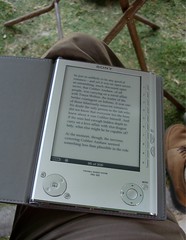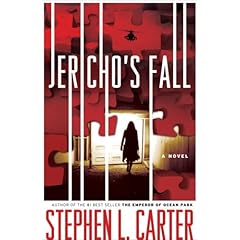New York Times Bestselling mystery/thriller author Joe Finder was gracious enough to let us reprint his blog post here on the art of the pitch.By Joseph Finder This is the text of my March Writing Tips newsletter, which just went out. If you'd like to subscribe, you can do so here.
This is the text of my March Writing Tips newsletter, which just went out. If you'd like to subscribe, you can do so here.My Hollywood agent brought me out to L.A. not long ago to pitch a couple of Big Shot TV producers on an idea for a show they wanted me to create. I figured, why not? I flew out there and got into the meeting with Big Shot Producer #1, wearing my expensive jeans, and started telling him about my idea, the same way I’d tell my editor or my agent.
About five minutes into my spiel he cut me off and said, “Excuse me. No offense, but you’ve never pitched before, have you?”
I confessed I hadn’t, as if I had to say anything. I don’t pitch. I write.
He said, “I can tell. That’s not how you do it. Why don’t you come back in after you meet with the other producers and pitch it again?”
You might think that I’d be embarrassed or annoyed, but the truth is, I appreciated his honesty and respected the guy all the more for it.
Pitching is a specialized skill that has very little to do with whether you can write. But in Hollywood, the pitch is the currency. If you can’t pitch your idea, no one’s buying.
Why should novelists care about the art of the pitch in Hollywood? Because being able to pitch a movie, or a TV show, is the same skill as being able to come up with the “hook,” the “what-if,” the premise of that novel you’re writing. Or that script.
Put it another way: you’re in an elevator with one of the most powerful book agents in New York (or wherever), and you have ten seconds to pitch your novel to her so that she’ll actually want to read it. Can you do it?
Bet you can’t.
Maybe you’re thinking, “Who cares? I’m not going to ever get into an elevator with a powerful agent, and if I did, I’d probably freeze up anyway.” Maybe. But odds are, at some point you will have to e-mail or snail-mail a pitch in the form of a letter or a note.
“So what’s it about?” a friend asks you. You say, um, er, well . . .
Summarizing your story in a sentence or two is one of the hardest things to do, whether you’ve published ten books or none. Don’t forget, we established writers have to pitch our books too, when we’re interviewed on TV or radio. It’s not easy. But it’s essential, and not just to sell a book. I’m convinced that if you can’t “pitch” it in a sentence, you don’t have the story figured out yet. Simple as that.

Years ago, when I was struggling through the first draft of The Moscow Club, I had lunch with an editor. “What’s your ‘What If?’” he asked.
I had no idea. My “What If”? I’d never thought in those terms. But he was right; every book starts with a question that, in the end, it answers. Call it a Hook, call it a donnée, call it a premise. It’s the thing that sucks the reader in and makes him or her want to know what happens next.
Now, a confession: I’ve been writing thrillers for over 20 years, and I still get confused about the difference between a “hook” and a premise. Is a hook the thing that starts the book and grabs you by the lapel and makes you want keep reading? Or is it the concept of the entire book — a definition that veers dangerously into the Hollywood notion of “high concept”?
I’ve done some thinking, and here’s my answer. “High concept” is an unjustly maligned term meaning a story idea that can be easily grasped both by studio execs and by audiences. But a warning: just because you can pitch it in a sentence doesn’t make it High Concept. No — it has to be extremely appealing and commercial, not just succinct. It’s got to have wide, instant commercial appeal.
Yet if a story is all high concept with no follow-through, it’s little more than a gimmick. Take “Snakes On a Plane” — you get what it’s about instantly. You may even want to watch it. But it’s not a good movie. It’s all wind-up, little delivery.
Don’t get me wrong; there’s nothing wrong with a “high concept” thriller. In fact, if you have a high concept, that makes it even easier to sell. Take
The Bourne Identity, for example. What if a man with amnesia has forgotten he’s the world’s most dangerous assassin? That concept boosted Bob Ludlum’s already large readership hugely, based on the premise alone. And it’s a great one. A couple more great high-concept thrillers: Michael Crichton’s
Jurassic Park: “What if scientists could clone dinosaurs from prehistoric mosquito blood trapped in amber?” Or John Grisham’s
The Firm: “What if a high-end law firm turned out to be a Mafia front?
High concept isn’t necessarily cheesy at all — Shakespeare’s
Romeo and Juliet, anyone? It’s all about how well it’s executed. Scott Turow’s
Presumed Innocent (prosecutor is accused of the murder of his lover, and he’s the first-person narrator) is high-concept to be sure, but beautifully written and brilliantly plotted.
A hook, on the other hand, is the opening gambit that reels you in -- like a fish-hook. Harlan Coben is a master of the hook. (Dan Brown says so.)
Tell No One, for instance — a guy gets an e-mail message from his dead girlfriend, who may or may not be dead. I’m there. The book spirals on from there, but that’s the set-up, the premise that grabs you at the outset.
A fishing hook needs bait and a fisherman, though, and a writing hook needs a story. An unusual situation, however intriguing, is not a story. “A family digs a swimming pool in the backyard, and finds a buried time capsule” is a great premise for a novel – but what happens next? “A family’s discovery of a time capsule buried in their backyard makes them the targets of government agents from every country in the world” — that’s a story hook, because now we know that the time capsule sets a chain of events in motion. (Hey, I just made that up, but I like it!)
So, the moral of the story: if you have a high concept for a novel, great. But you don’t need one. At the very least you want a great “what if,” a hook that grabs the reader in the beginning and makes him or her want to keep reading.
In any case, you do want your story to have a simple, easily expressible premise, and until you know how to articulate it, the odds are you haven’t figured it out yourself.
 Writing in essence is the same. If you don't craft your words, sentences and paragraphs properly, your intended message does not come across.
Writing in essence is the same. If you don't craft your words, sentences and paragraphs properly, your intended message does not come across.![Reblog this post [with Zemanta]](http://img.zemanta.com/reblog_e.png?x-id=abbdfcd0-2c4a-47a6-8492-984b0797726e)

![Reblog this post [with Zemanta]](http://img.zemanta.com/reblog_e.png?x-id=c63bf1f9-ba5f-4f17-bd0e-c1bbe6e93913)


![Reblog this post [with Zemanta]](http://img.zemanta.com/reblog_e.png?x-id=d55d0b39-c06b-4409-87ec-7327d99354ab)



![Reblog this post [with Zemanta]](http://img.zemanta.com/reblog_e.png?x-id=7116e354-fc70-40bc-a861-72b207245233)


![Reblog this post [with Zemanta]](http://img.zemanta.com/reblog_e.png?x-id=bcf6ab23-4283-4603-83e6-ead8321cf703)
![Reblog this post [with Zemanta]](http://img.zemanta.com/reblog_e.png?x-id=057e49f7-a6a7-40cc-89fc-a021b32d724f)

![Reblog this post [with Zemanta]](http://img.zemanta.com/reblog_e.png?x-id=05c617ea-1a31-4f0b-ab52-25506255c016)